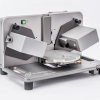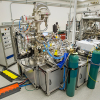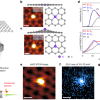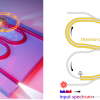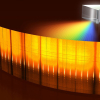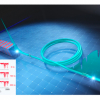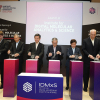
Researchers from the QIMR Berghofer Medical Research Institute in Brisbane, Australia, have collaborated with Agilent scientists on a proof-of-concept FT-IR-based saliva COVID-19 testing workflow using the Agilent Cary 630 FT-IR Spectrometer. The study investigated the pathophysiological response to a COVID-19 infection through ATR-FT-IR spectroscopy. The researchers acquired IR spectra of saliva samples following a quick and simple sample preparation requiring only ethanol and basic laboratory equipment.
Unlike other testing technologies such as PCR testing or rapid antigen test, the ATR-FT-IR method analyses the pathophysiological responses of the human body rather than detecting the pathogen/antigen itself, which is thought to make this method more robust against virus mutations.
“We applied a simple ethanol decontamination procedure for biosafe handling of self-collected saliva samples. A basic step of significant importance for any test that has the potential to be used in non-clinical environments such as in remote areas or in scenarios where large crowds require rapid testing, for example, in airports, or sports stadiums”, explained associate professor Michelle Hill, head of QIMR Berghofer’s Precision and Systems Biomedicine Research Group.
“Earlier research studies on ATR-FT-IR for COVID-19 saliva testing were not conclusive on the biological basis for the saliva testing methodology. To shine a light on this aspect, we also conducted controlled infection experiments on cells and mice models and established the most characteristic COVID-19 positive spectral signature. We integrated our data from in vitro cell studies, in vivo mouse studies and independent human cohort studies, as well as data from recent publications to demonstrate the robustness of the methodology”, Hill added.










